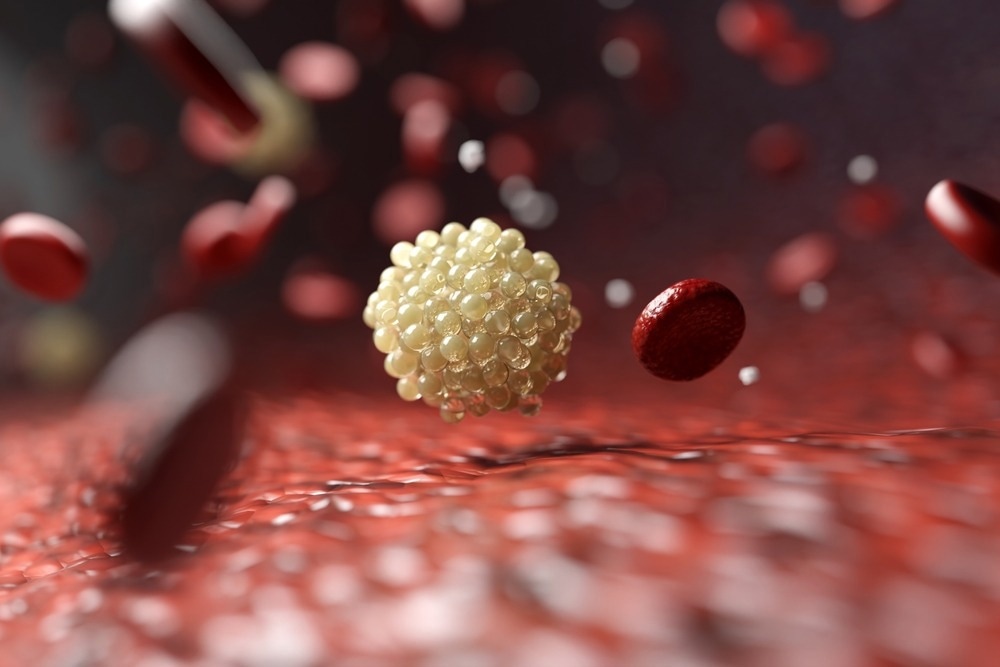History
Cause and symptoms
Forms of VLCAD
Epidemiology
Diagnosis and treatment
References
Further reading
Very long-chain acyl-CoA dehydrogenase deficiency (VLCAD), a rare inherited genetic condition, is caused by mutations in the ACADVL gene. It is associated with a disorder in fatty acid metabolism and follows the autosomal recessive pattern of inheritance.
There are two forms of VLCAD: early-onset and late-onset. Patients' clinical presentations are diverse, with three primary phenotypes. The incidence of VLCAD varies across continents, although it is estimated to have a prevalence of 1 in 40,000 to 120,000 people. Diagnosis is made based on biochemical analysis and genetic testing.
History
Hale et al. reported three unrelated individuals with nonketotic hypoglycemia in early childhood in 1985. They also experienced episodes of cardiorespiratory arrest associated with fasting along with cardiomegaly, hepatomegaly, and hypotonia.
Specific assays in liver cells, fibroblasts, and leukocytes revealed that long-chain acyl-CoA dehydrogenase activity was less than 10% of control levels. The parents' enzyme activity was intermediate, indicating autosomal recessive inheritance.
He also confirmed the impairment of long-chain dehydrogenase. In 1993, Bertrand et al. described a 2-year-old girl with a fatty acid oxidation deficit and a lack of very long-chain acyl-CoA dehydrogenase.
Cause and symptoms
Pathogenic mutations in the ACADVL gene cause VLCAD, which is inherited in an autosomal recessive manner. As a result, the mitochondrial oxidation of long-chain fatty acids suffers from an enzyme deficiency.
When the body requires additional energy, such as during prolonged fasting, physical exertion, or febrile infections, fatty acids are a vital source of energy. Long-chain fatty acids with chain lengths of 14–20 carbons are not digested in this condition. As a result of the insufficient energy supply, metabolic crises occur.

Image Credit: Piyaset/Shutterstock.com
A lack of energy might cause symptoms such as lethargy and hypoglycemia. Fats that aren't broken down properly can accumulate and harm tissues of the liver, heart, and skeletal muscles, leading to additional clinical symptoms seen in persons with VLCAD.
Patients' clinical presentations are quite diverse, with three primary phenotypes. Symptoms may appear as early as childhood or may not appear until adulthood. Babies and children with the early and childhood forms of LCAD frequently experience periods of a disease known as metabolic crises. Extreme drowsiness, unpleasant mood, behavioral abnormalities, and poor appetite are some of the earliest signs of a metabolic crisis.
Fever, vomiting, diarrhea, and nausea are some of the other symptoms. Serious complications, including liver abnormalities and life-threatening heart problems, are also a possibility for those who are affected.
Forms of VLCAD
Symptoms appear in infants with the most severe form of VLCAD deficiency, the early-onset form, within the first few months of life. Cardiomyopathy and arrhythmia are two heart disorders that can result from this type of sickness. Poor muscle tone (hypotonia), low blood sugar, lack of energy, and hepatomegaly are among the symptoms of VLCAD deficiency in babies. Heart difficulties, metabolic crises, and pulmonary problems can cause early death.
The childhood-onset variant of VLCAD deficiency often manifests in early childhood and does not affect the heart. This type of diabetes is characterized by an enlarged liver and periods of low blood sugar. Other liver abnormalities may be present, and rhabdomyolysis may be present in certain people.
Late-onset VLCAD deficiency is characterized by modest symptoms that appear in adolescence or adulthood. Some people don't show symptoms until they're fasting, sick, or exercising. Muscular cramps and muscle breakdown may occur in people with this version of the condition on occasion. Kidney injury may result as a result of this. Symptoms are generally exacerbated by excessive activity or other sources of stress.
Epidemiology
The rate of live births varies between 1:30,000 and 1:400,000. Saudi Arabia, with a reported incidence of 1:3200, and Taiwan, with a reported incidence of 1:1,400,000, are two outliers. The incidence in Europe varies from 1:77,000 in Germany and the Netherlands to 1:400,000 in the Czech Republic.
Diagnosis and treatment
A thorough clinical examination, identification of typical signs (severe skeletal muscle weakness, heart enlargement), and the results of many specialized tests (urine and blood tests), enzyme evaluation (muscle, liver tissue, leukocytes), and other factors can help to identify VLCAD. A thorough and complete family history is very crucial in order to discover if the family has had any previous incidents of sudden infant death (SID).
Life with LC-FAOD: Tasia’s Story
A particular diet may be advised for people with VLCAD deficiency. Intravenous glucose and a low-fat formula created with forms of fat that the individual is better able to digest are typically used to treat early-onset VLCAD deficiency. Food items high in fat content should be avoided by patients suffering from various forms of VLCAD deficiency. Long durations of fasting, eating, and very vigorous exercise should all be avoided.
During times of illness, people with VLCAD deficiency may require more medical attention. However, with early diagnosis and lifetime treatment, a person with VLCAD deficiency has a very good prognosis. Many people are able to live symptom-free lives with normal physical and mental development.
References
- Remec, Z. I., Groselj, U., Drole Torkar, A., Zerjav Tansek, M., Cuk, V., Perko, D., Ulaga, B., Lipovec, N., Debeljak, M., Kovac, J., Battelino, T., & Repic Lampret, B. (2021). Very Long-Chain Acyl-CoA Dehydrogenase Deficiency: High Incidence of Detected Patients with Expanded Newborn Screening Program. Frontiers in genetics, 12, 648493. https://doi.org/10.3389/fgene.2021.648493
- VLCADD (VERY LONG CHAIN ACYL-COA DEHYDROGENASE DEFICIENCY). (2020). [Online] newbornscreening.info. Available at: https://www.newbornscreening.info/vlcadd-very-long-chain-acyl-coa-dehydrogenase-deficiency/
- VERY-LONG-CHAIN ACYL-COA DEHYDROGENASE DEFICIENCY. [Online] Myriad Genetics. Available at: https://myriadwomenshealth.com/diseases/very-long-chain-acyl-coa-dehydrogenase-deficiency/
- ACYL-CoA DEHYDROGENASE, VERY LONG-CHAIN, DEFICIENCY OF; ACADVLD. [Online] OMIM. Available at: https://www.omim.org/entry/201475
- Very long-chain acyl-CoA dehydrogenase deficiency. [Online] Medlineplus. Available at: https://medlineplus.gov/genetics/condition/very-long-chain-acyl-coa-dehydrogenase-deficiency/
- Leslie ND, Valencia CA, Strauss AW, et al. Very Long-Chain Acyl-Coenzyme A Dehydrogenase Deficiency. 2009 May 28 [Updated 2021 May 13]. In: Adam MP, Ardinger HH, Pagon RA, et al., editors. GeneReviews® [Internet]. Seattle (WA): University of Washington, Seattle; 1993-2022. Available from: https://www.ncbi.nlm.nih.gov/books/NBK6816/
Further Reading
Last Updated: Nov 25, 2024